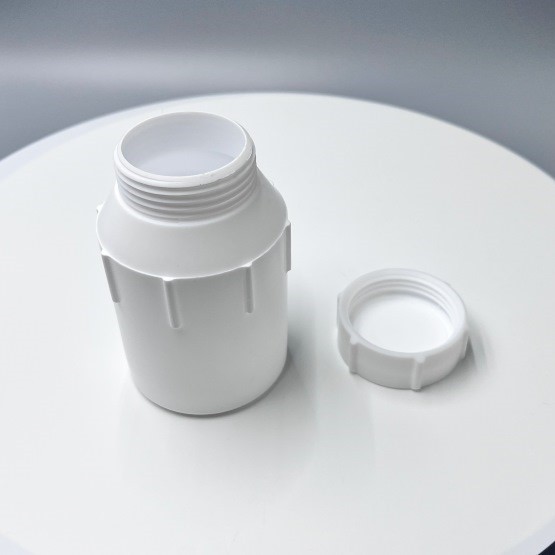
PTFE material
Custom PTFE Teflon Parts Manufacturer for Reagent Wide Mouth Fine Mouth Sample High Temperature Bottles
Item Number : PTFE-24
Price varies based on specs and customizations
- Material
- PTFE
- Specification
- See the form
Shipping:
Contact us to get shipping details Enjoy On-time Dispatch Guarantee.
Why Choose Us
Easy ordering process, quality products, and dedicated support for your business success.
Introduction
The PTFE reagent bottle, also known as a PTFE chemical bottle or Teflon reagent bottle, is a versatile and robust alternative to traditional glass reagent bottles. Due to its exceptional chemical resistance, high temperature tolerance, and durability, it finds extensive use across various sectors. Here are the main application areas of PTFE reagent bottles:
- Laboratory Use: Ideal for storing and handling chemicals, samples, and reagents in laboratory settings. Its resistance to both acids and alkalis makes it suitable for a wide range of experiments and tests.
- Industrial Chemistry: Essential in industrial settings where harsh chemicals are handled. The bottles are used for storing and transporting chemicals safely.
- Pharmaceutical Industry: Used for storing medicines and chemicals in pharmaceutical research and production. The bottles' non-reactive nature ensures the integrity of the stored substances.
Details & Parts
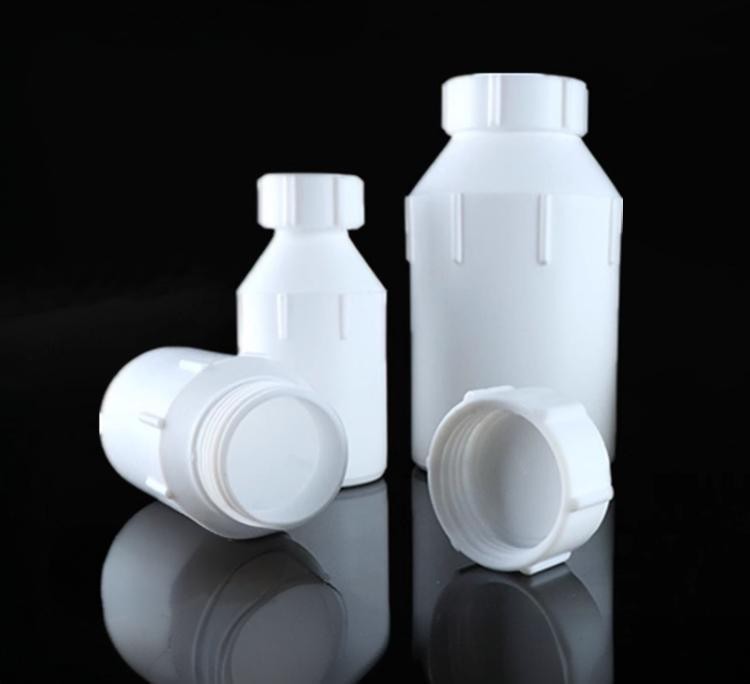
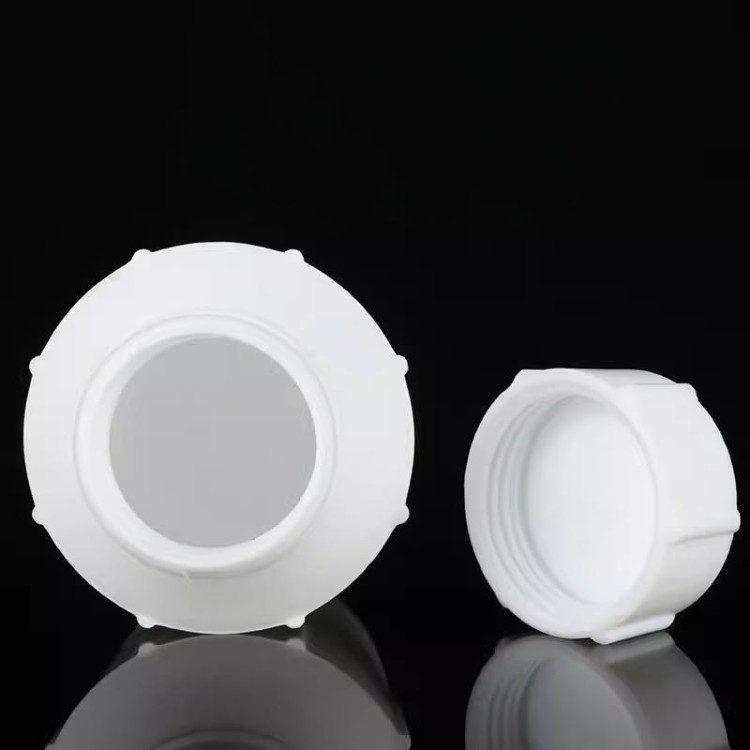
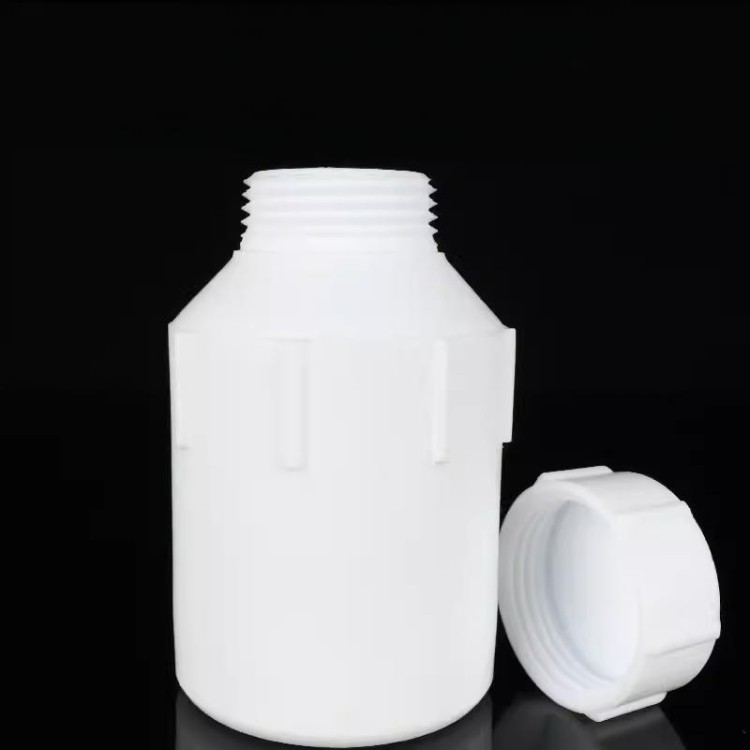
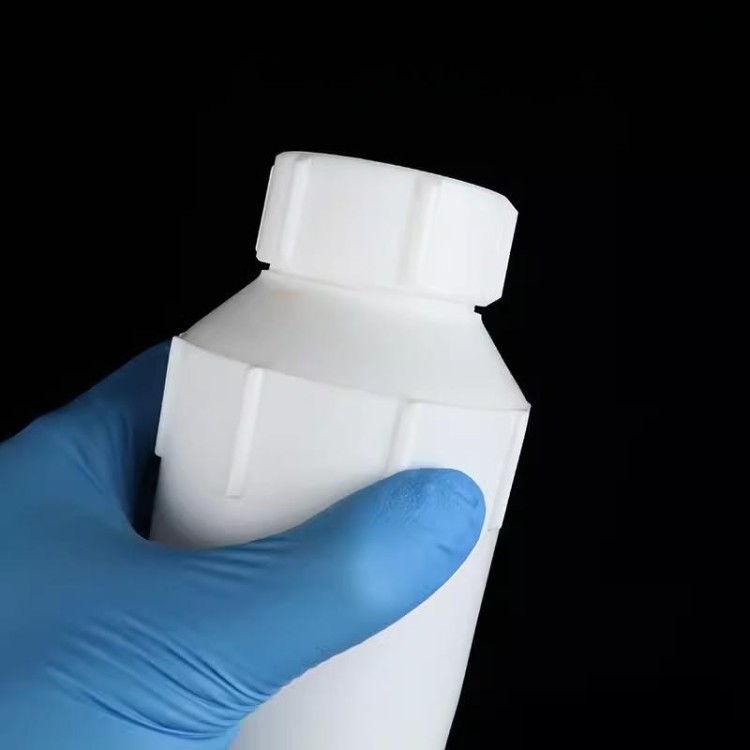
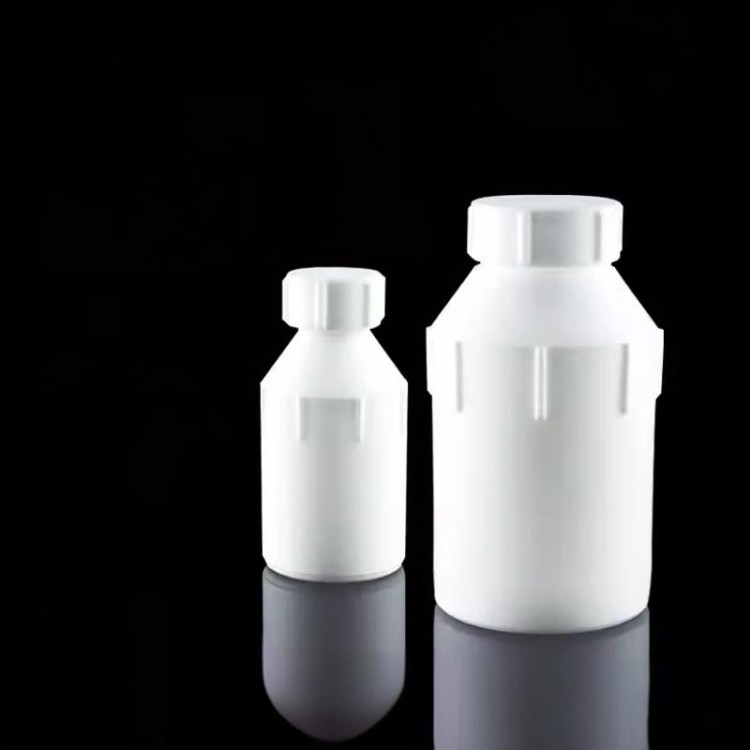
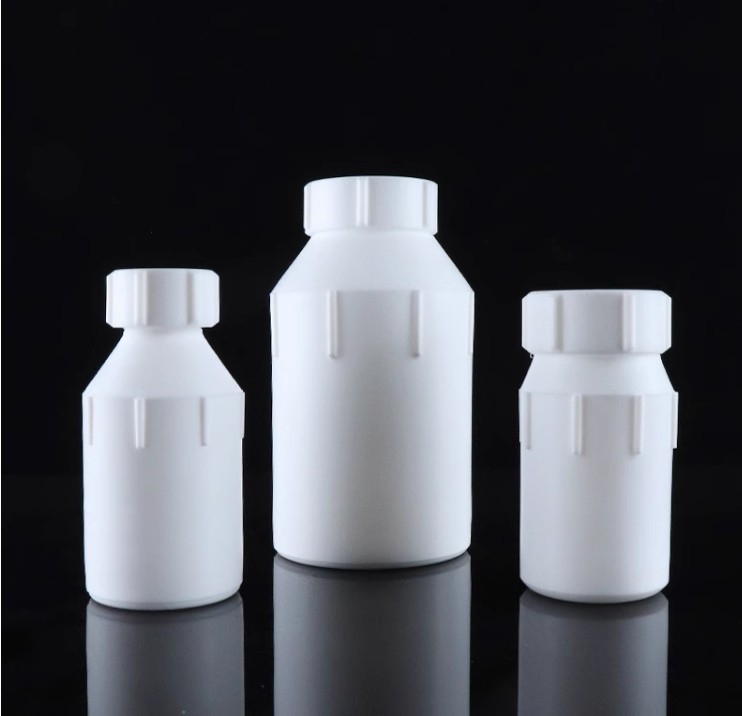
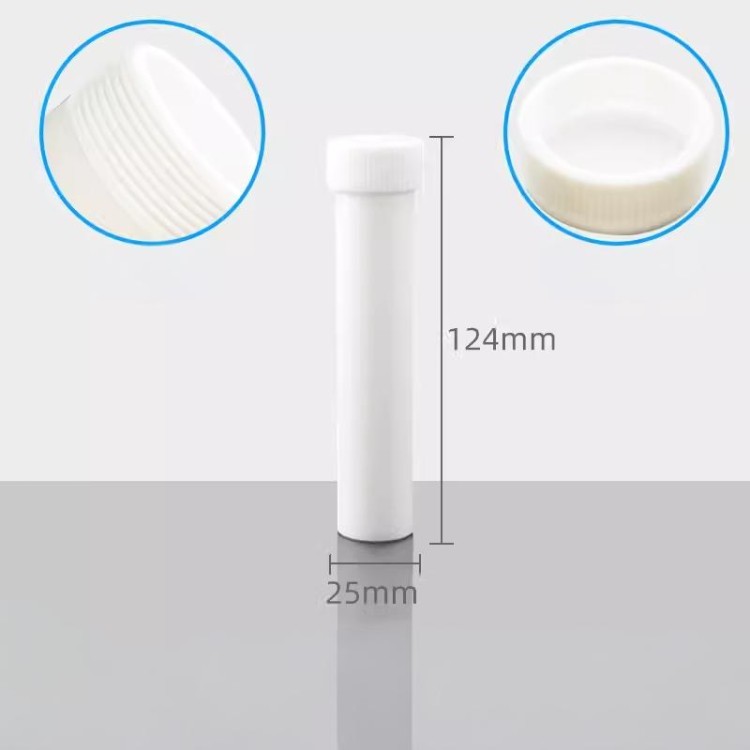
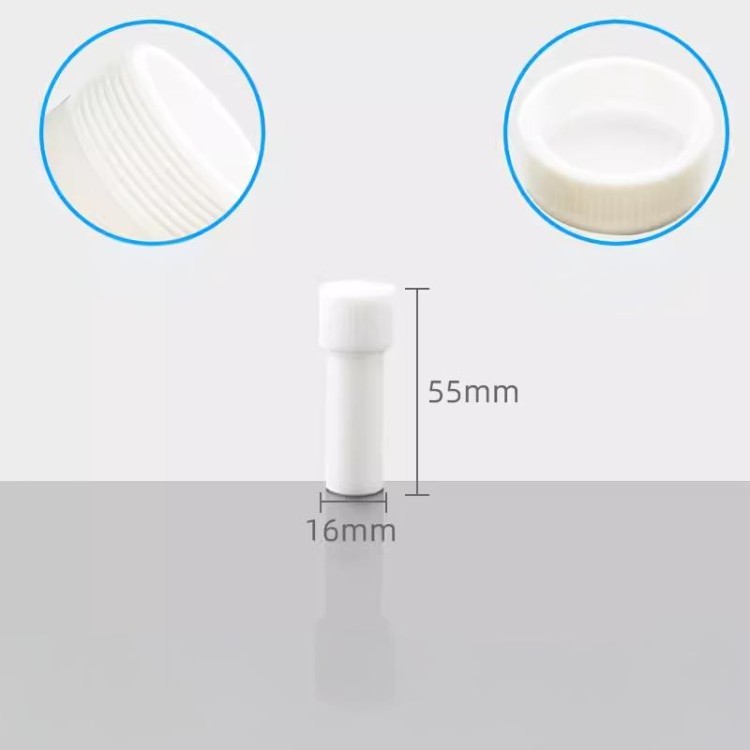
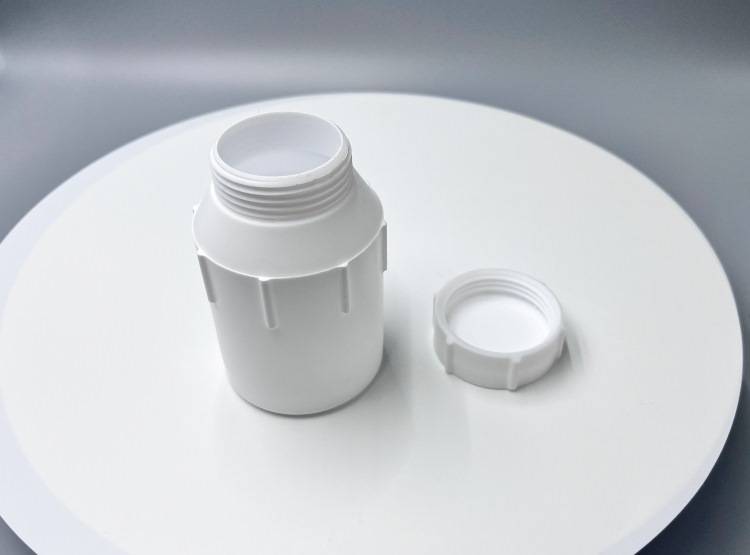
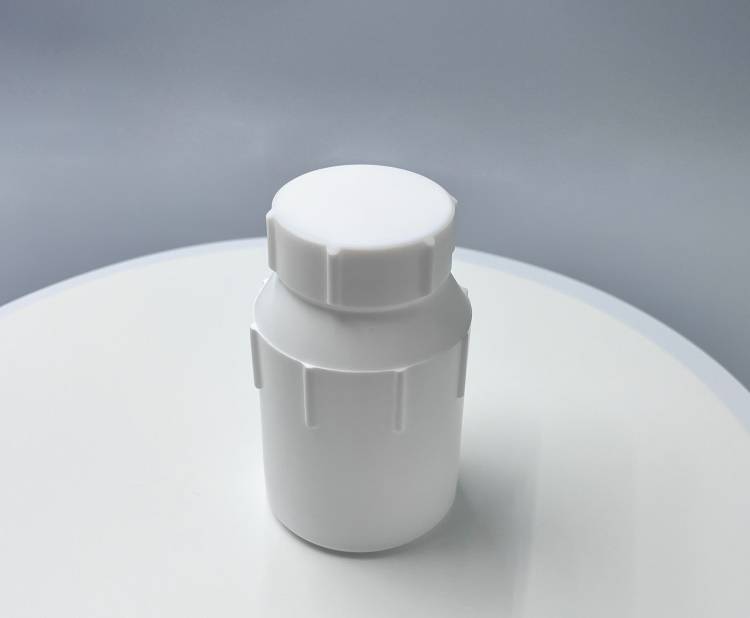
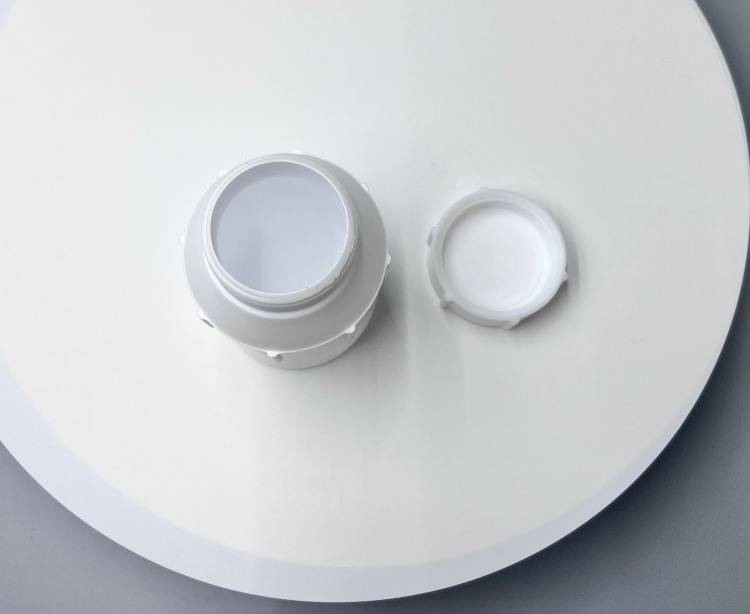
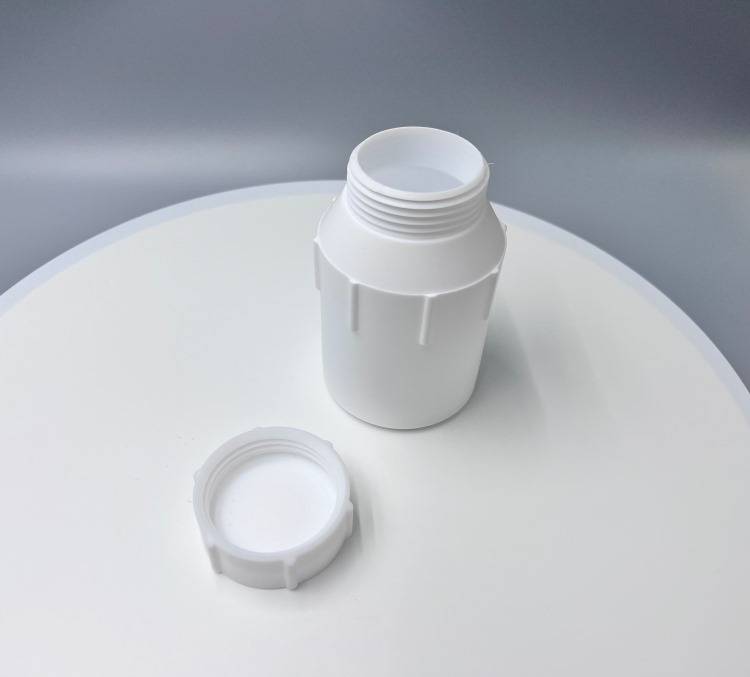
Technical specifications
| Model | Specification | Outer diameter | Height | Inner diameter |
|---|---|---|---|---|
| PTFE small mouth bottle | 25ml | 36mm | 81mm | 21mm |
| 50ml | 49mm | 95mm | 20mm | |
| 100ml | 51mm | 98mm | 20mm | |
| 150ml | 54mm | 108mm | 20mm | |
| 250ml | 70mm | 117mm | 35mm | |
| 500ml | 81mm | 147mm | 35mm | |
| 1000ml | 100mm | 188mm | 40mm | |
| 2000ml | 145mm | 217mm | 48mm | |
| PTFE wide mouth bottle | 50ml | 50mm | 92mm | 35mm |
| 100ml | 52mm | 103mm | 35mm | |
| 150ml | 54mm | 106mm | 35mm | |
| 250ml | 68mm | 114mm | 40mm | |
| 500ml | 81mm | 149mm | 40mm | |
| 1000ml | 100mm | 192mm | 48mm | |
| 2000ml | 144mm | 220mm | 63mm | |
| PTFE screw mouth flat bottom reagent bottle | 5ml | 16mm | 55mm | * |
| 10ml | 16mm | 108mm | * | |
| 20ml | 22mm | 106mm | * | |
| 30ml | 25mm | 124mm | * | |
| 50ml | 30mm | 125mm | * | |
| 100ml | 39mm | 139mm | * |
Advantages
- High Chemical Resistance: PTFE reagent bottles are highly resistant to a wide range of chemicals, including strong acids and alkalis, making them ideal for storing hazardous substances without the risk of chemical degradation.
- Temperature Tolerance: These bottles can withstand extreme temperatures, ranging from -200ºC to +260ºC, ensuring their usability in various laboratory conditions and applications.
- Non-Adhesive Surface: The minimal surface tension of PTFE prevents any substance from adhering to the bottle, simplifying the cleaning process and maintaining the purity of stored materials.
- Lightweight and Unbreakable: Unlike glass bottles, PTFE reagent bottles are lightweight and virtually unbreakable, enhancing safety and ease of handling in the laboratory.
- Leak-Proof Cap: Equipped with a leak-proof screw cap, these bottles ensure that stored chemicals remain secure and do not leak, reducing the risk of contamination and accidents.
Designed for You
KinTek provide deep custom made service and equipment to worldwide customers, our specialized teamwork and rich experienced engineers are capable to undertake the custom tailoring hardware and software equipment requirements, and help our customer to build up the exclusive and personalized equipment and solution!
Would you please drop your ideas to us, our engineers are ready for you now!
Trusted by Industry Leaders

FAQ
Can PTFE Reagent Bottles Withstand All Corrosive Liquids?
What Are The Typical Applications Of PTFE Reagent Bottles?
What Is A Thermal Element?
How Does A Thermal Element Work?
What Are The Advantages Of Using Thermal Elements?
What Are The Different Types Of Thermal Elements?
How Should Thermal Elements Be Calibrated And Maintained?
4.9 / 5
Exceptional chemical resistance, safe for handling hazardous substances in the lab.
4.8 / 5
Unbreakable and lightweight, perfect for safe and easy handling during experiments.
4.7 / 5
Withstands extreme temperatures, suitable for diverse lab conditions and applications.
4.9 / 5
Versatile and robust, perfect for storing various substances in the laboratory environment.
4.8 / 5
Leak-proof screw cap ensures secure storage and reduces the risk of contamination.
4.7 / 5
Minimal surface tension prevents adhesion, simplifying the cleaning process and maintaining material purity.
4.9 / 5
Excellent dielectric properties, ideal for electrical experiments and specific applications.
4.8 / 5
Long service life and durability, offers great value for laboratory use.
4.7 / 5
Easily sterilizable, making it suitable for medical and biological applications.
4.9 / 5
Perfect for educational research and safe handling of substances in the laboratory.
4.8 / 5
Strong resistance to strong acid and alkali, ensures safety and reliability in experiments.
4.7 / 5
Highly resistant to various chemicals, making it perfect for storing different substances.
4.9 / 5
Durable and flexible, with excellent craftsmanship for practical use in experiments.
REQUEST A QUOTE
Our professional team will reply to you within one business day. Please feel free to contact us!
Related Products
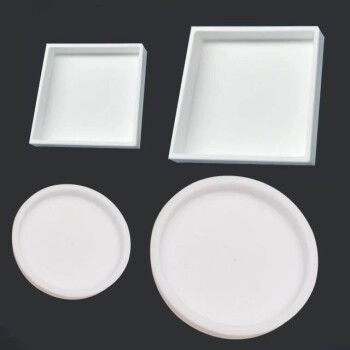
Custom PTFE Teflon Parts Manufacturer for PTFE Containers
PTFE container is a container with excellent corrosion resistance and chemical inertness.

Custom PTFE Teflon Parts Manufacturer for PTFE Measuring Cylinder 10/50/100ml
PTFE measuring cylinder are a rugged alternative to traditional glass cylinders. They are chemically inert over a wide temperature range (up to 260º C), have excellent corrosion resistance and maintain a low coefficient of friction, ensuring ease of use and cleaning.

Custom PTFE Teflon Parts Manufacturer for PTFE Tweezers
PTFE tweezers inherit the excellent physical and chemical properties of PTFE, such as high temperature resistance, cold resistance, acid and alkali resistance, and corrosion resistance to most organic solvents.
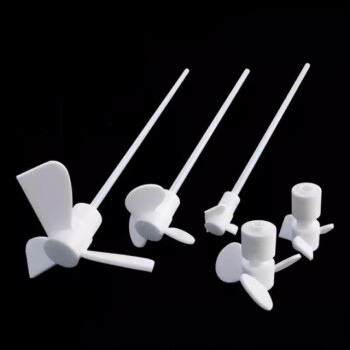
Custom PTFE Teflon Parts Manufacturer Laboratory High Temperature Mixing Paddle Mixer
The PTFE mixing paddle mixer is a versatile and robust tool designed for laboratory use, particularly in environments requiring high resistance to chemicals and extreme temperatures. Crafted from high-quality PTFE, this mixer boasts several key features that enhance its functionality and durability.
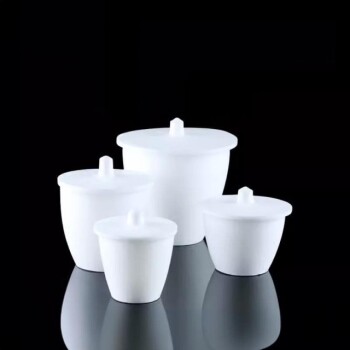
Custom Machined and Molded PTFE Teflon Parts Manufacturer with PTFE Crucible and Lid
PTFE crucibles, made from pure Teflon, offer chemical inertness and resistance from -196°C to 280°C, ensuring compatibility with a wide range of temperatures and chemicals. These crucibles feature machine-finished surfaces for easy cleaning and prevention of contamination, making them ideal for precise laboratory applications.
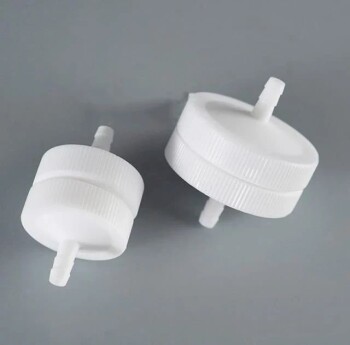
Custom PTFE Teflon Parts Manufacturer for Sampling Filters
PTFE filter element is a commonly used industrial filter element, mainly used to filter corrosive media such as high-purity chemical substances, strong acids, and strong alkalis.
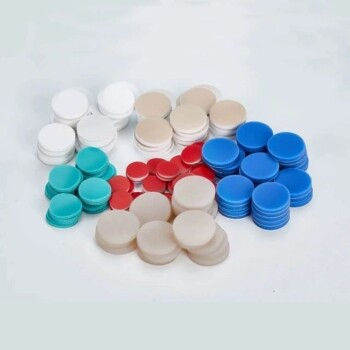
Custom PTFE Teflon Parts Manufacturer for Gaskets and More
Gaskets are materials placed between two flat surfaces to enhance the seal. To prevent fluid leakage, sealing elements are arranged between static sealing surfaces.
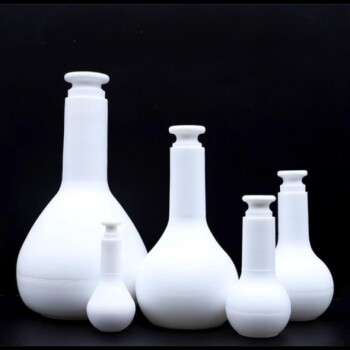
Custom PTFE Teflon Parts Manufacturer for F4 PTFE Volumetric Bottle
The PTFE Volumetric Flask, a robust alternative to glass and PP flasks, excels in measuring both acidic and alkaline liquids. Characterized by its chemical inertness, translucency, and wide volume options, this flask ensures a non-leachable, ultra-clean background. Its non-stick surface simplifies cleaning and maintenance, making it ideal for harsh laboratory conditions.

Custom PTFE Teflon Parts Manufacturer F4 Conical Flask Triangular Flask 50 100 250ml
The PTFE triangular flask, also known as a Teflon reagent bottle, is a robust, chemical-resistant alternative to traditional glass bottles, suitable for handling both acids and alkalis. These bottles are unbreakable, lightweight, and feature a leak-proof screw cap, making them ideal for laboratory use.
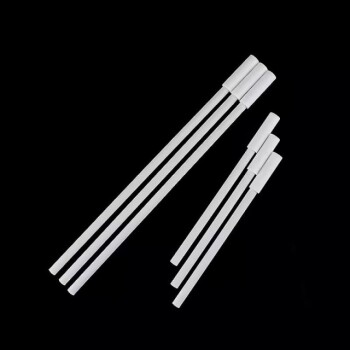
Custom PTFE Teflon Parts Manufacturer for PTFE Stirring Bar Recovery Rod
This product is used for stirrer recovery, and is resistant to high temperature, corrosion, and strong alkali, and is almost insoluble in all solvents. The product has a stainless steel rod inside and a polytetrafluoroethylene sleeve outside.
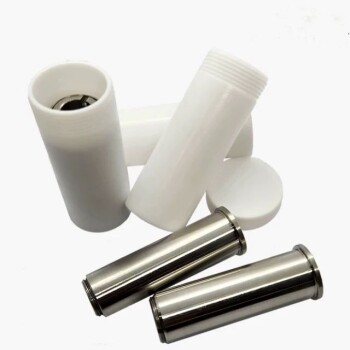
Custom PTFE Teflon Parts Manufacturer for PTFE Bottle Oil Fume Sampling Tube
PTFE products are generally called "non-stick coating", which is a synthetic polymer material that replaces all hydrogen atoms in polyethylene with fluorine.

Custom PTFE Teflon Parts Manufacturer PTFE Beaker and Lids
The PTFE beaker is a laboratory container that is resistant to acid, alkali, high and low temperatures and is suitable for temperatures ranging from -200ºC to +250ºC. This beaker has excellent chemical stability and is widely used for heat treatment samples and volume analysis.
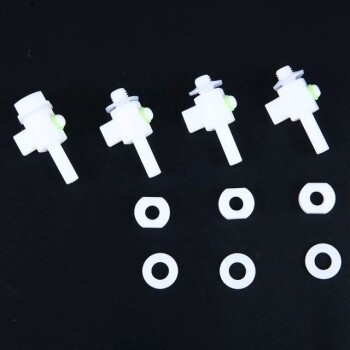
Custom PTFE Teflon Parts Manufacturer for Air Valve Applications
PTFE small air valve for gas-liquid sampling and sampling bag for sample collection.
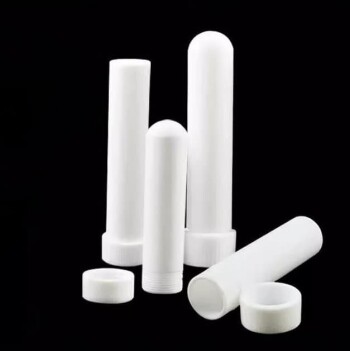
Custom PTFE Teflon Parts Manufacturer for Centrifuge Tubes
PTFE centrifugal tubes are highly valued for their exceptional chemical resistance, thermal stability, and non-stick properties, making them indispensable in various high-demand sectors. These tubes are particularly useful in environments where exposure to corrosive substances, high temperatures, or stringent cleanliness requirements are prevalent.
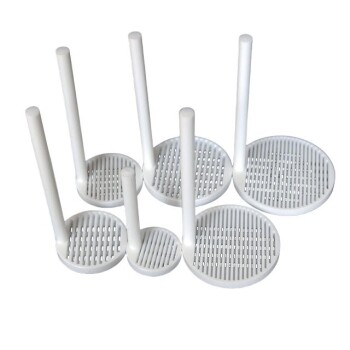
Custom PTFE Teflon Parts Manufacturer for Cleaning Racks
PTFE cleaning racks are mainly made of tetrafluoroethylene. PTFE, known as the "King of Plastics", is a polymer compound made of tetrafluoroethylene.

Custom PTFE Teflon Parts Manufacturer for PTFE Buchner Funnel and Triangular Funnel
The PTFE funnel is a piece of laboratory equipment used primarily for filtration processes, particularly in the separation of solid and liquid phases in a mixture. This setup allows for efficient and rapid filtration, making it indispensable in various chemical and biological applications.
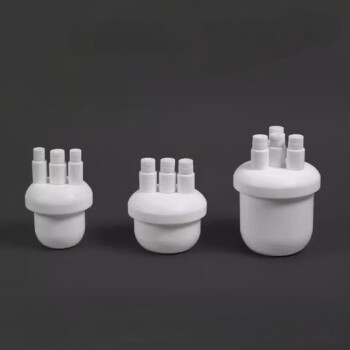
Custom PTFE Teflon Parts Manufacturer for Three-Necked Round Bottom Flask
PTFE flask, is a versatile laboratory container made from PTFE, offering exceptional chemical resistance, temperature stability, and non-stick properties. Ideal for handling corrosive substances and high-temperature applications, these flasks are essential in various laboratory procedures, including heating, mixing, and storage of chemicals.
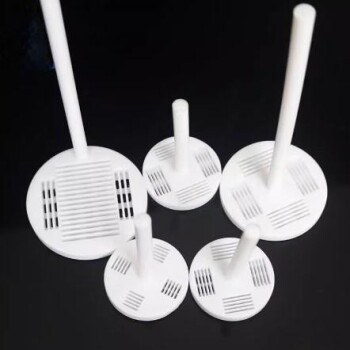
Custom Machined and Molded PTFE Teflon Parts Manufacturer for Laboratory ITO FTO Conductive Glass Cleaning Flower Basket
PTFE cleaning racks are mainly made of tetrafluoroethylene. PTFE, known as the "King of Plastics", is a polymer compound made of tetrafluoroethylene.

Custom PTFE Teflon Parts Manufacturer for Magnetic Stirring Bar
The PTFE magnetic stirring bar, made from high-quality PTFE, offers exceptional resistance to acids, alkalis, and organic solvents, coupled with high-temperature stability and low friction. Ideal for laboratory use, these stirring bars are compatible with standard flask ports, ensuring stability and safety during operations.
Related Articles

Innovative Application of PTFE in Mechanical Seals
PTFE has become one of the core materials in the field of mechanical seals due to its unique chemical stability, low friction coefficient (0.04-0.15), wide temperature range (-268°C to +315°C) and excellent corrosion resistance (pH 0-14).

The key role of PTFE in semiconductor manufacturing: from gas pipelines to electrical insulation
From high-purity gas delivery pipelines to precision electrical insulation components, the multi-faceted application of PTFE in the semiconductor industry chain provides important guarantees for the purity, stability and reliability of the manufacturing process.

PTFE seals: the invisible guardian of industrial leakage prevention
PTFE Seals are used to prevent liquid or gas leakage and are widely used in valves, pumps, and piping systems.

How to use PTFE to improve the working efficiency of pumps and valves
Polytetrafluoroethylene (PTFE) has become a key material for improving the efficiency of pumps and valves due to its unique physical and chemical properties.

Water Circulating Vacuum Pumps: A Practical Guide for Laboratory Applications
Discover the benefits of water circulating vacuum pumps for labs: chemical safety, low maintenance, and explosion-proof operation. Ideal for sensitive applications.